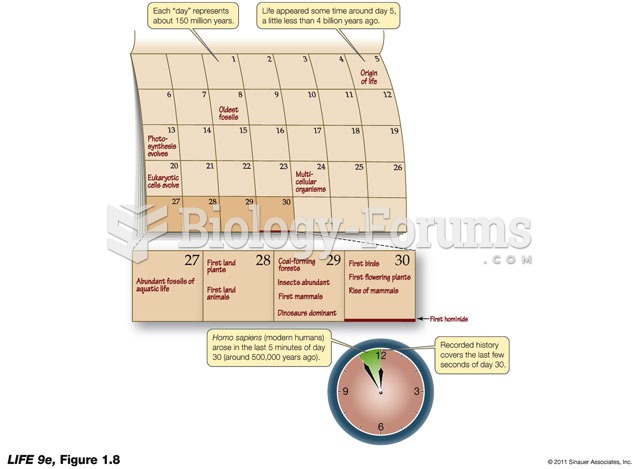|
|
|
Lower drug doses for elderly patients should be used first, with titrations of the dose as tolerated to prevent unwanted drug-related pharmacodynamic effects.
The largest baby ever born weighed more than 23 pounds but died just 11 hours after his birth in 1879. The largest surviving baby was born in October 2009 in Sumatra, Indonesia, and weighed an astounding 19.2 pounds at birth.
Always store hazardous household chemicals in their original containers out of reach of children. These include bleach, paint, strippers and products containing turpentine, garden chemicals, oven cleaners, fondue fuels, nail polish, and nail polish remover.
Approximately 500,000 babies are born each year in the United States to teenage mothers.
Acute bronchitis is an inflammation of the breathing tubes (bronchi), which causes increased mucus production and other changes. It is usually caused by bacteria or viruses, can be serious in people who have pulmonary or cardiac diseases, and can lead to pneumonia.
 Life-history cube, a classification of fish, mammals, and altricial birds based on three dimensionle
Life-history cube, a classification of fish, mammals, and altricial birds based on three dimensionle
 French and U.S. presidential elections in 2012 illustrate the durability of political culture and ho
French and U.S. presidential elections in 2012 illustrate the durability of political culture and ho





